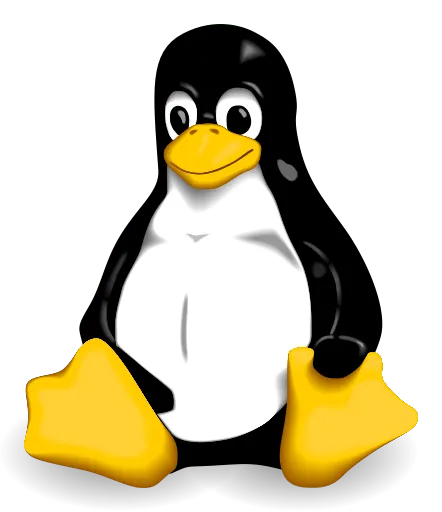

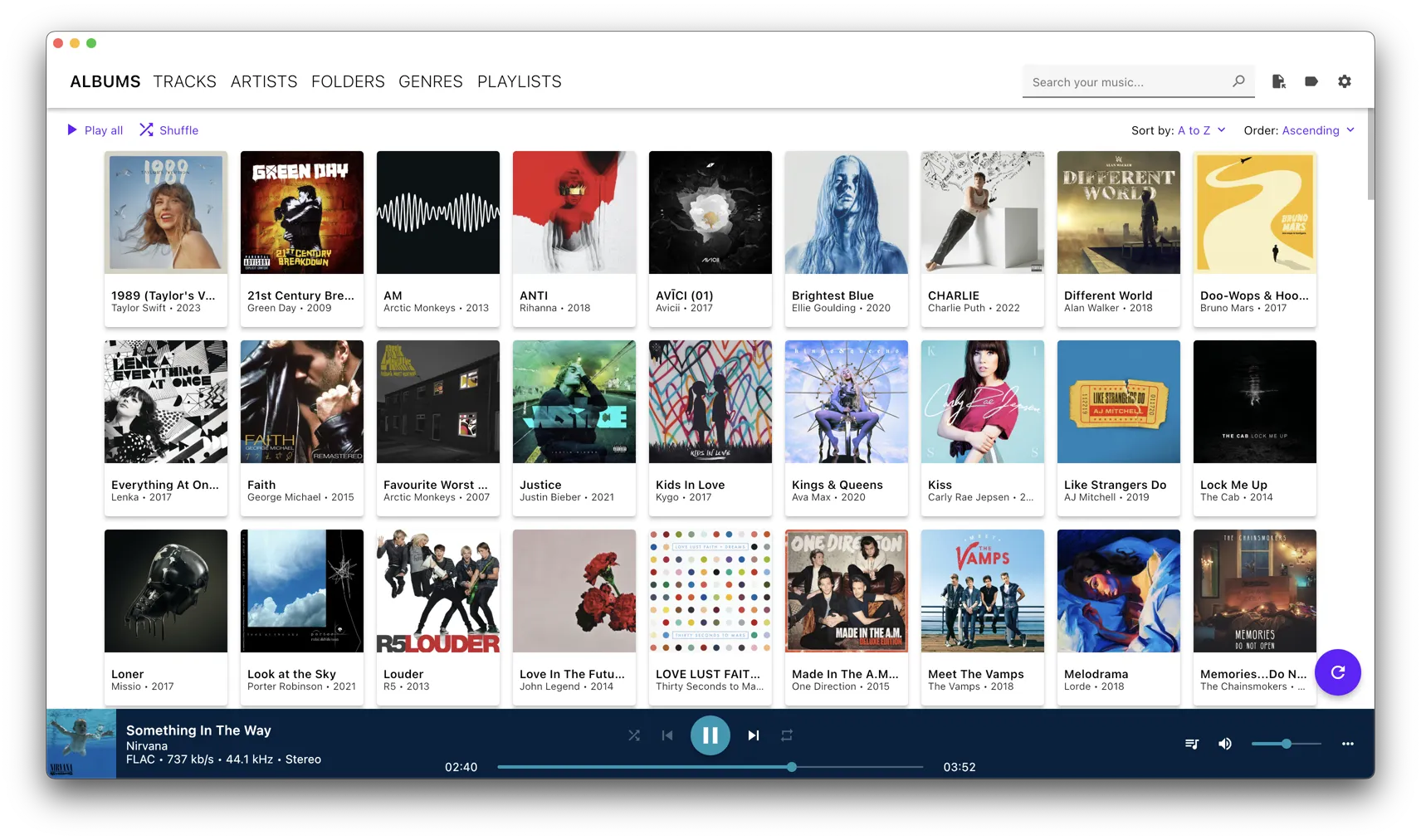
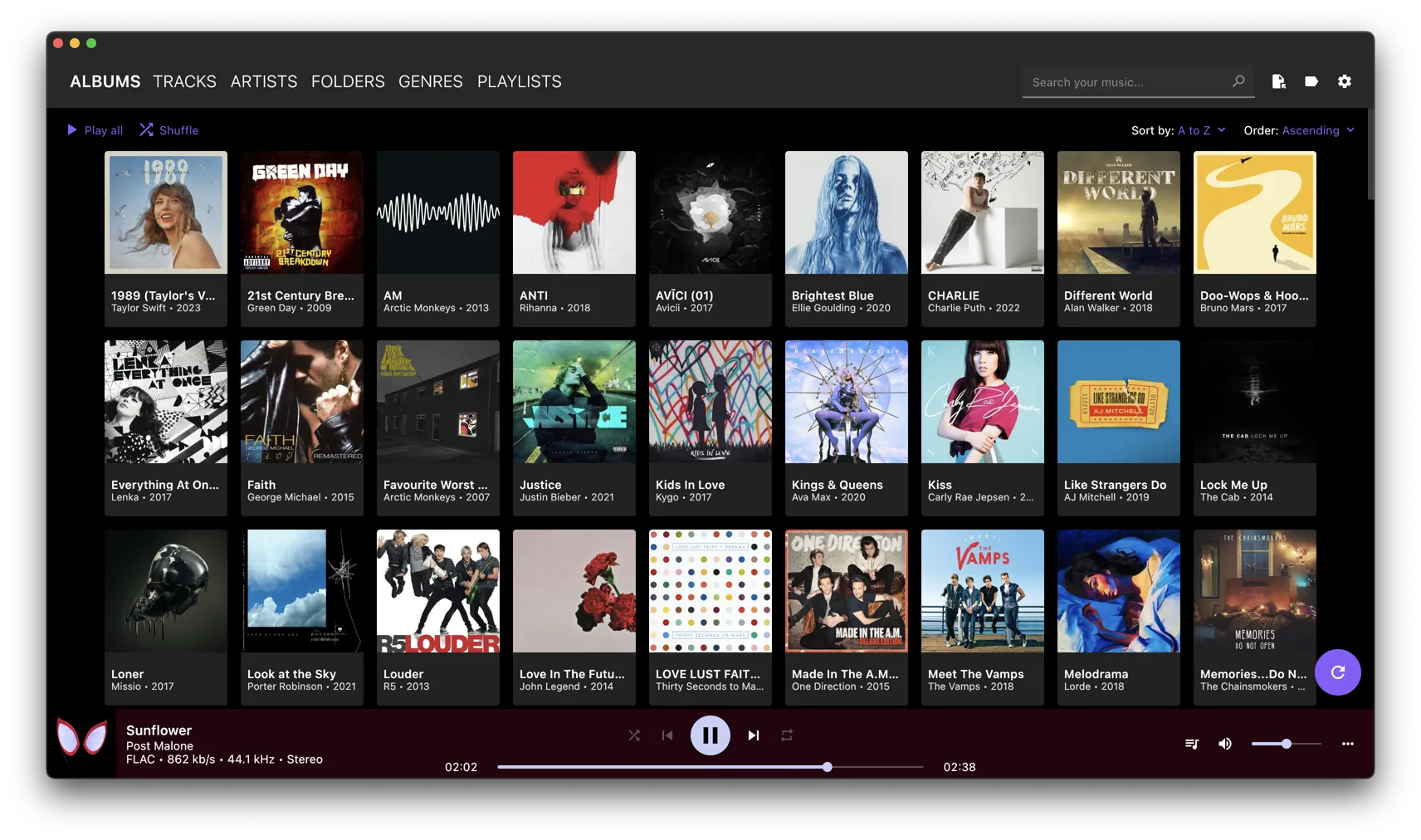
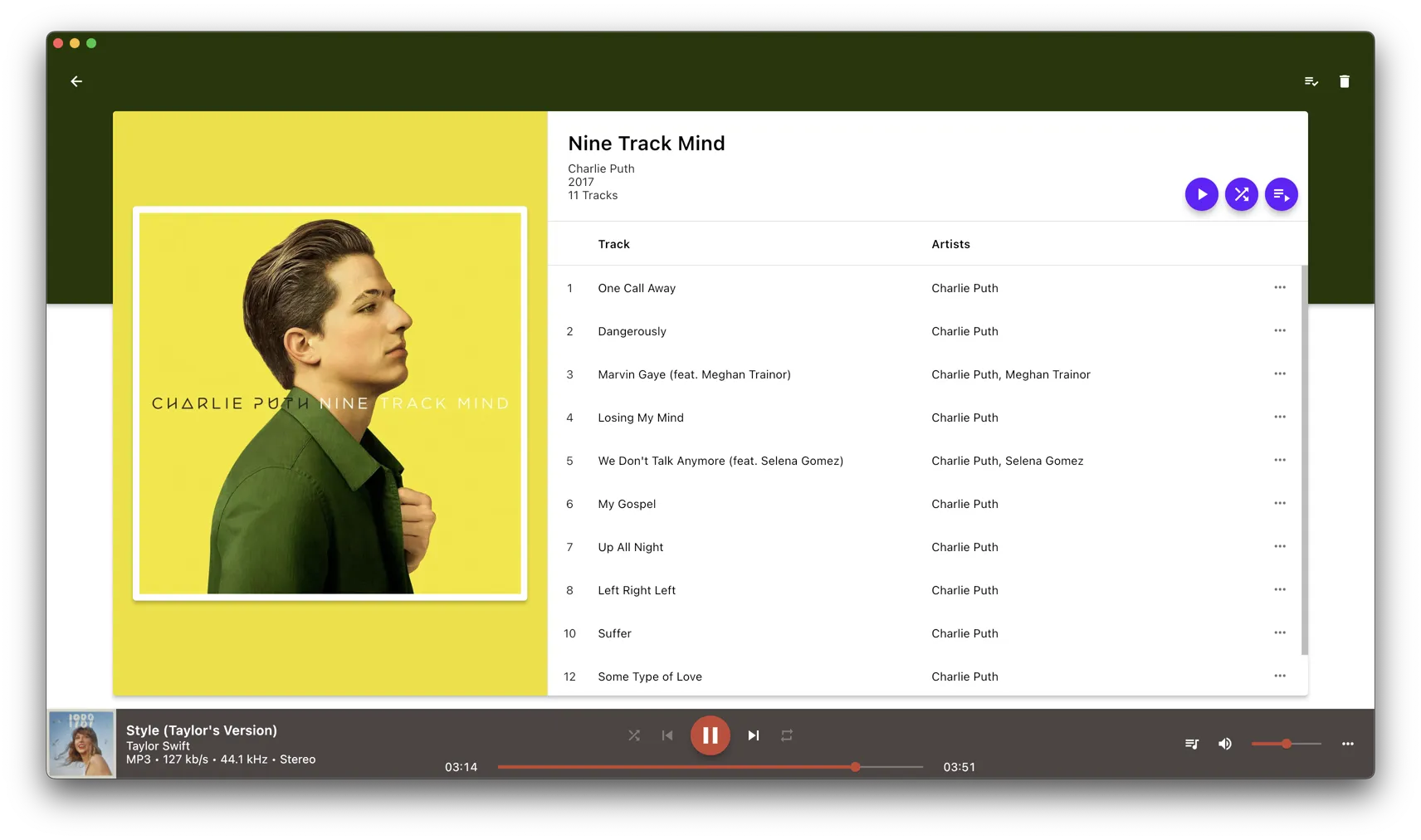
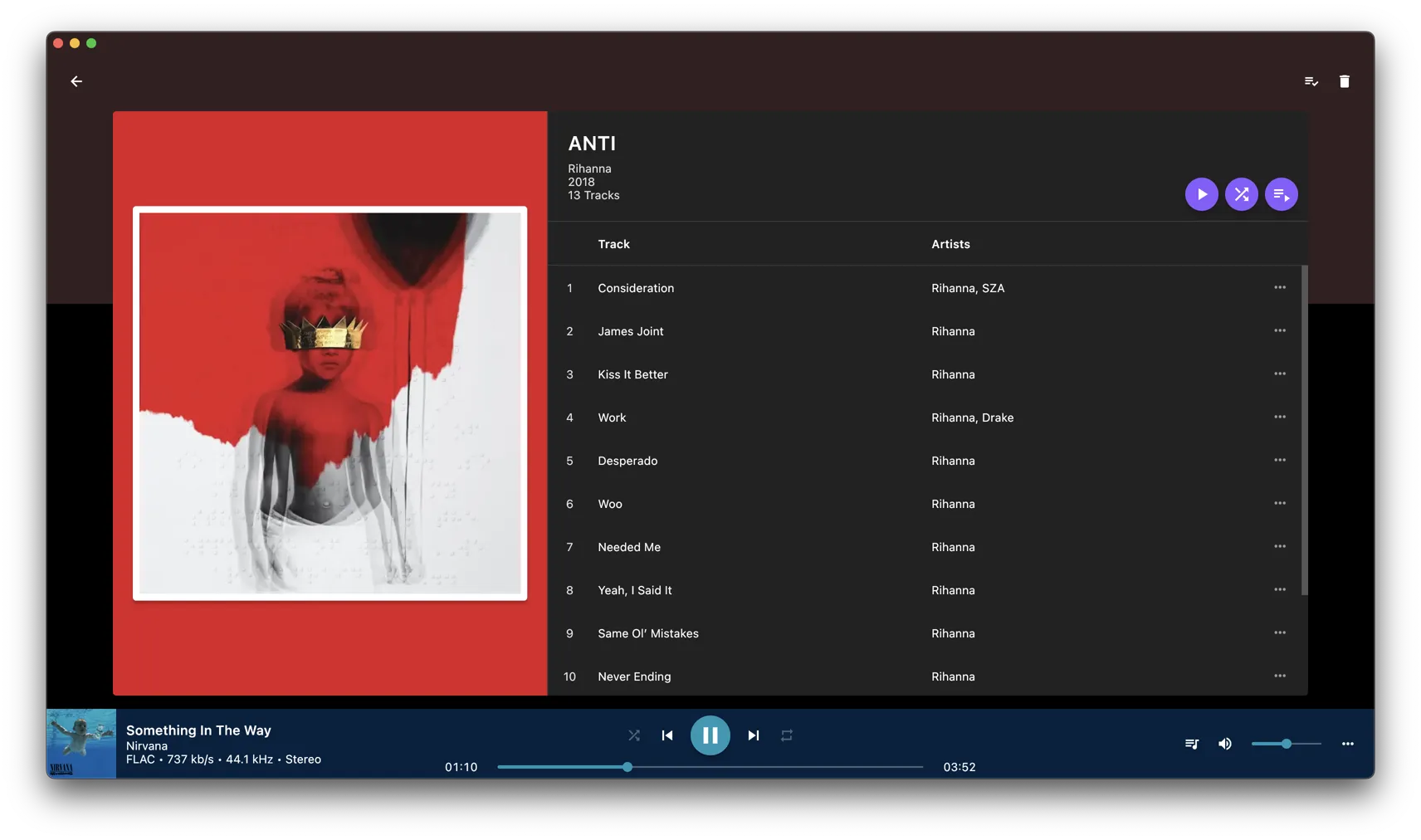
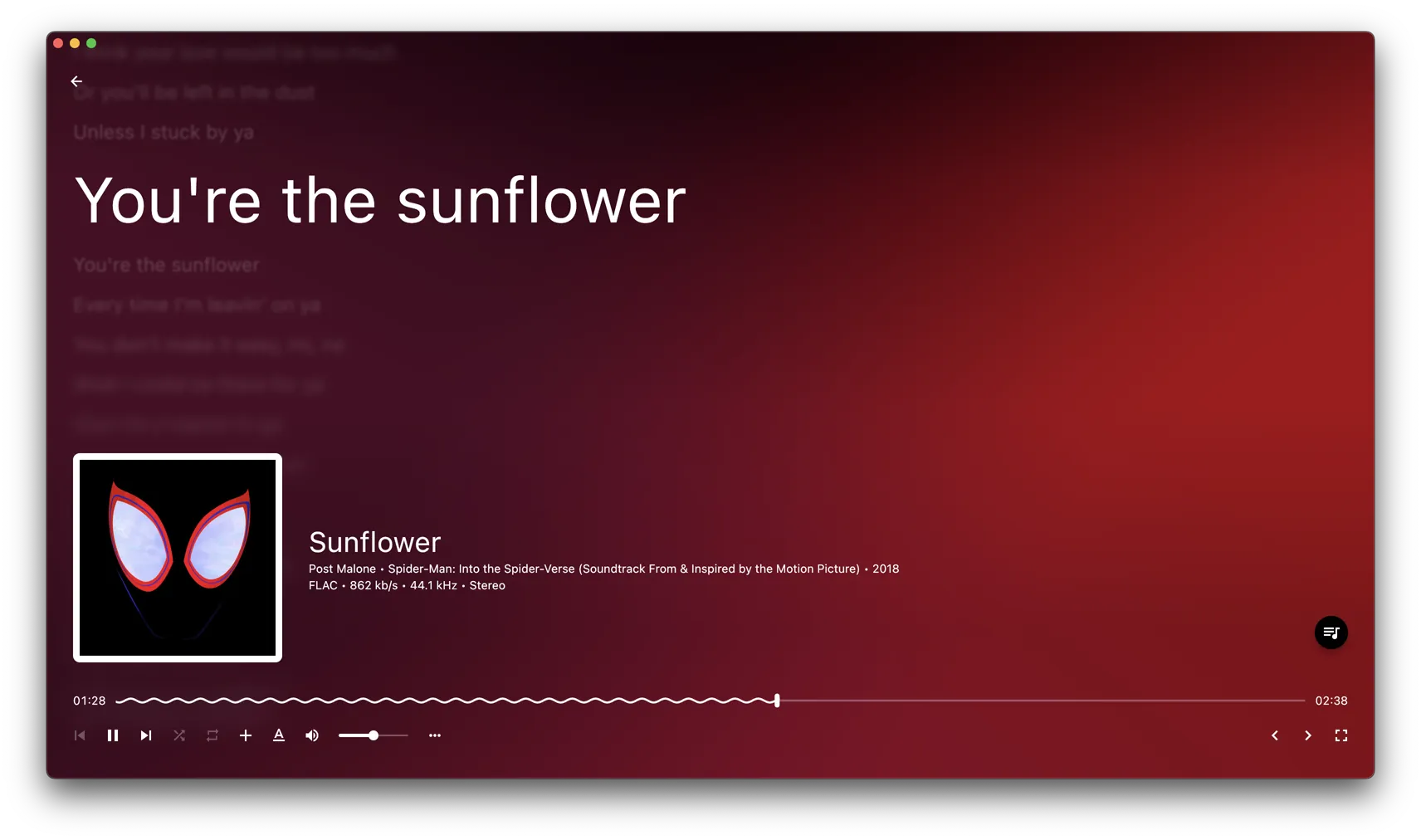
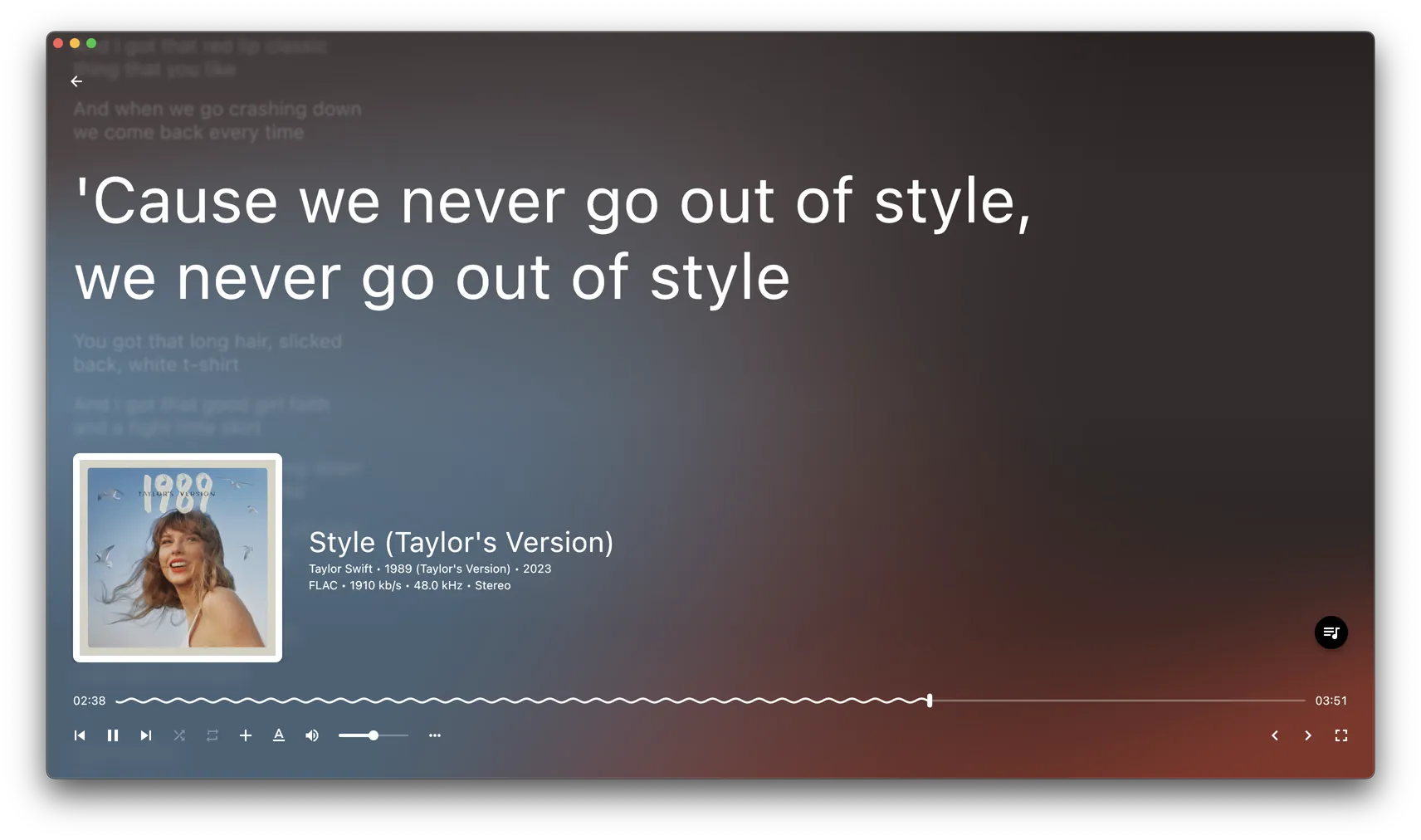
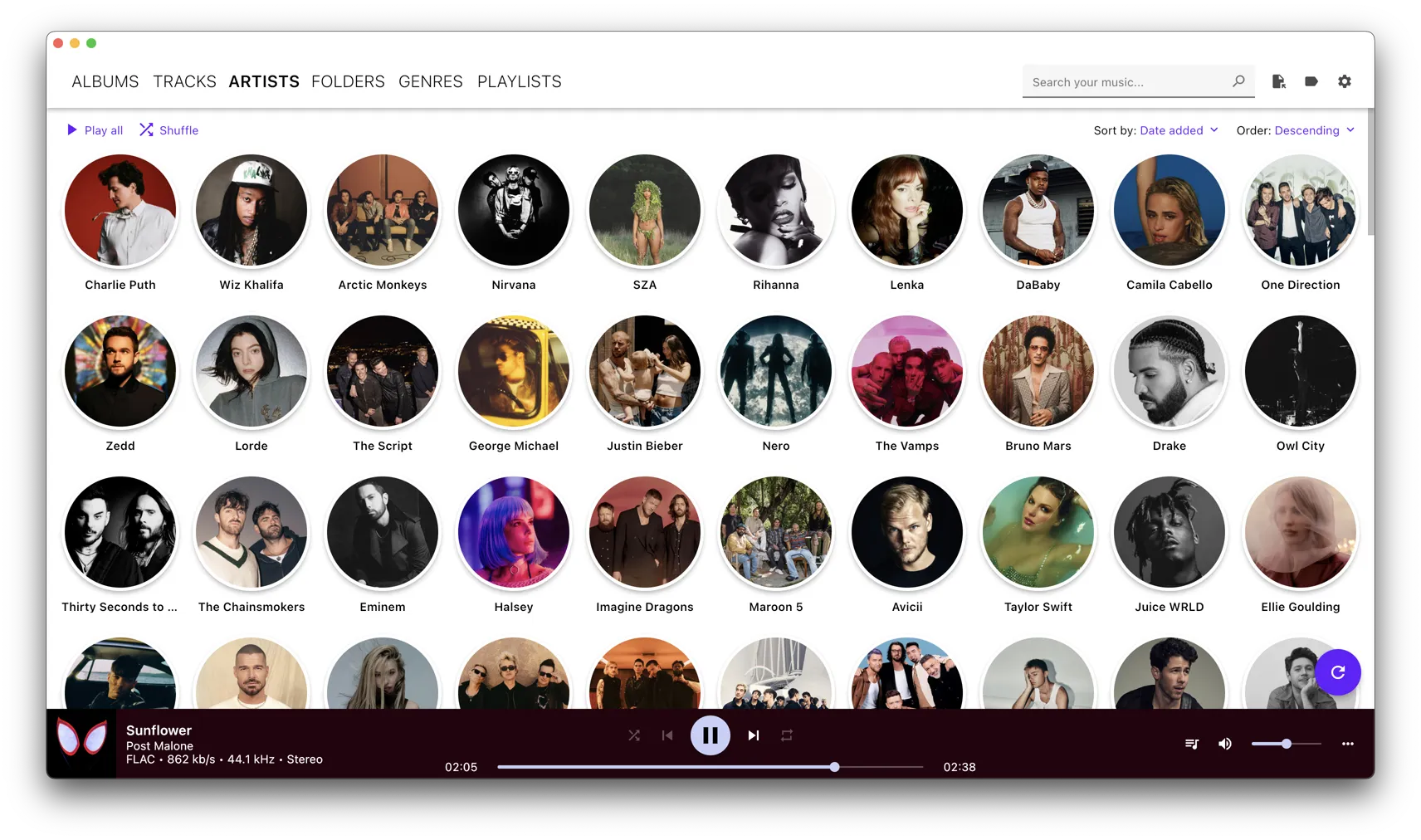
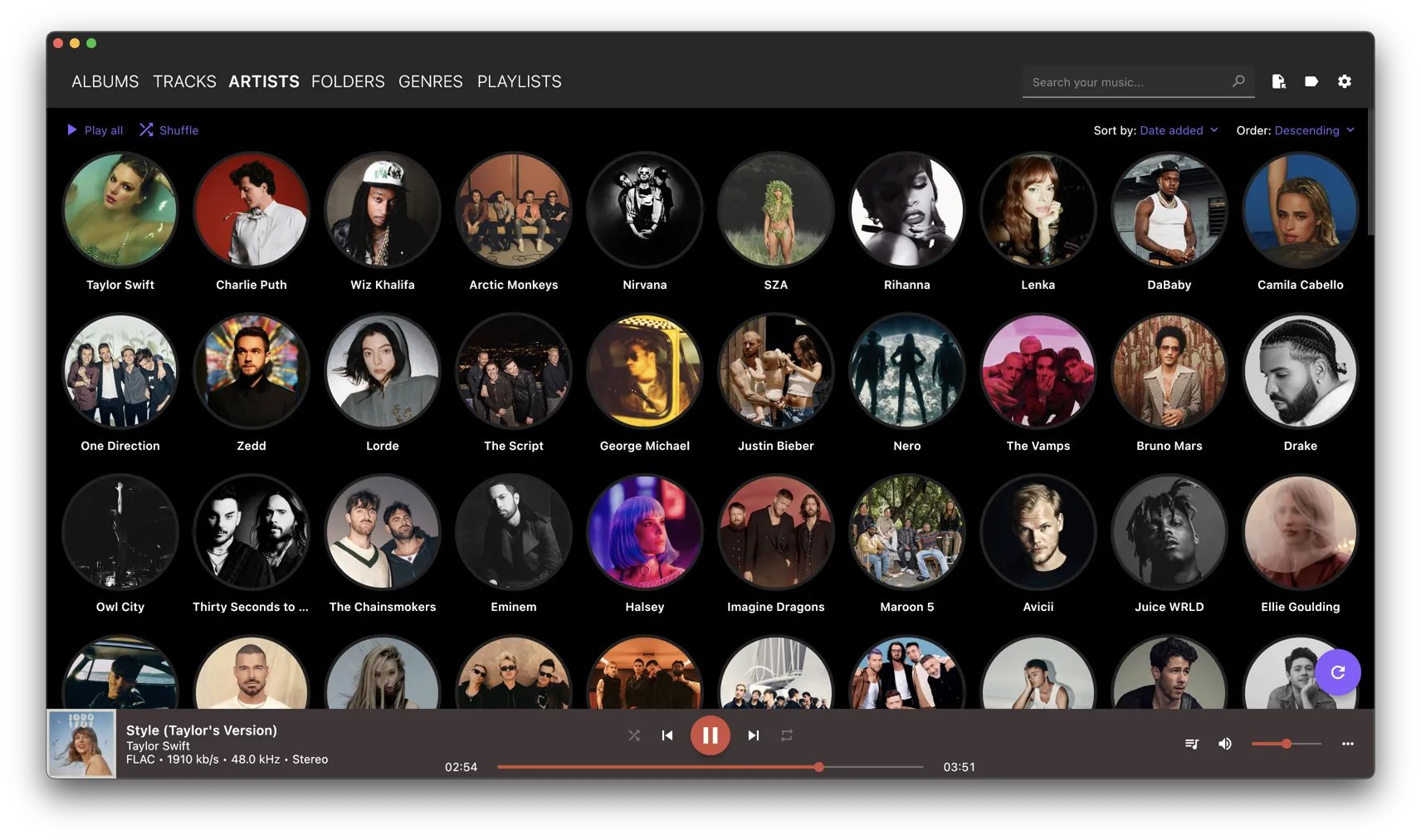
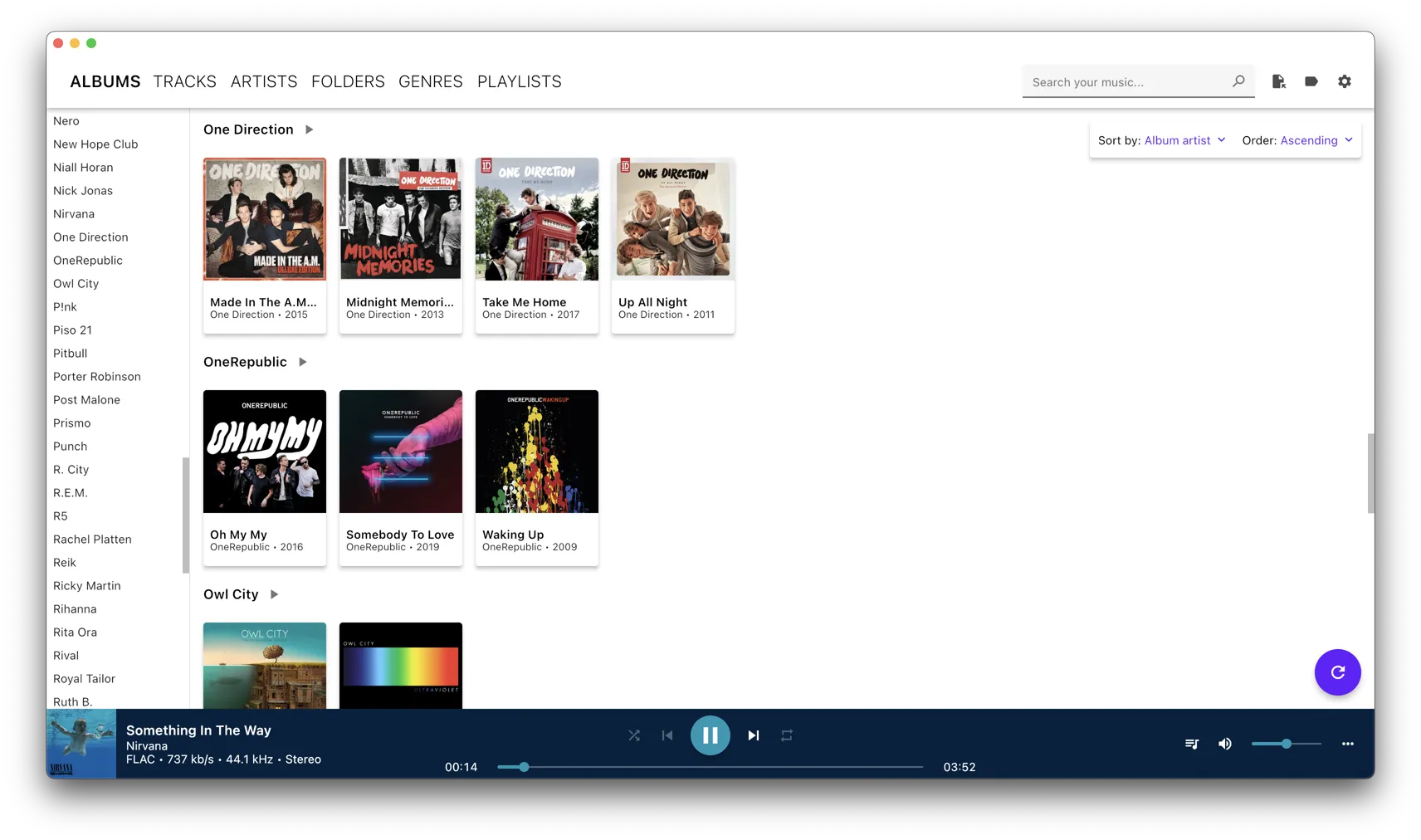
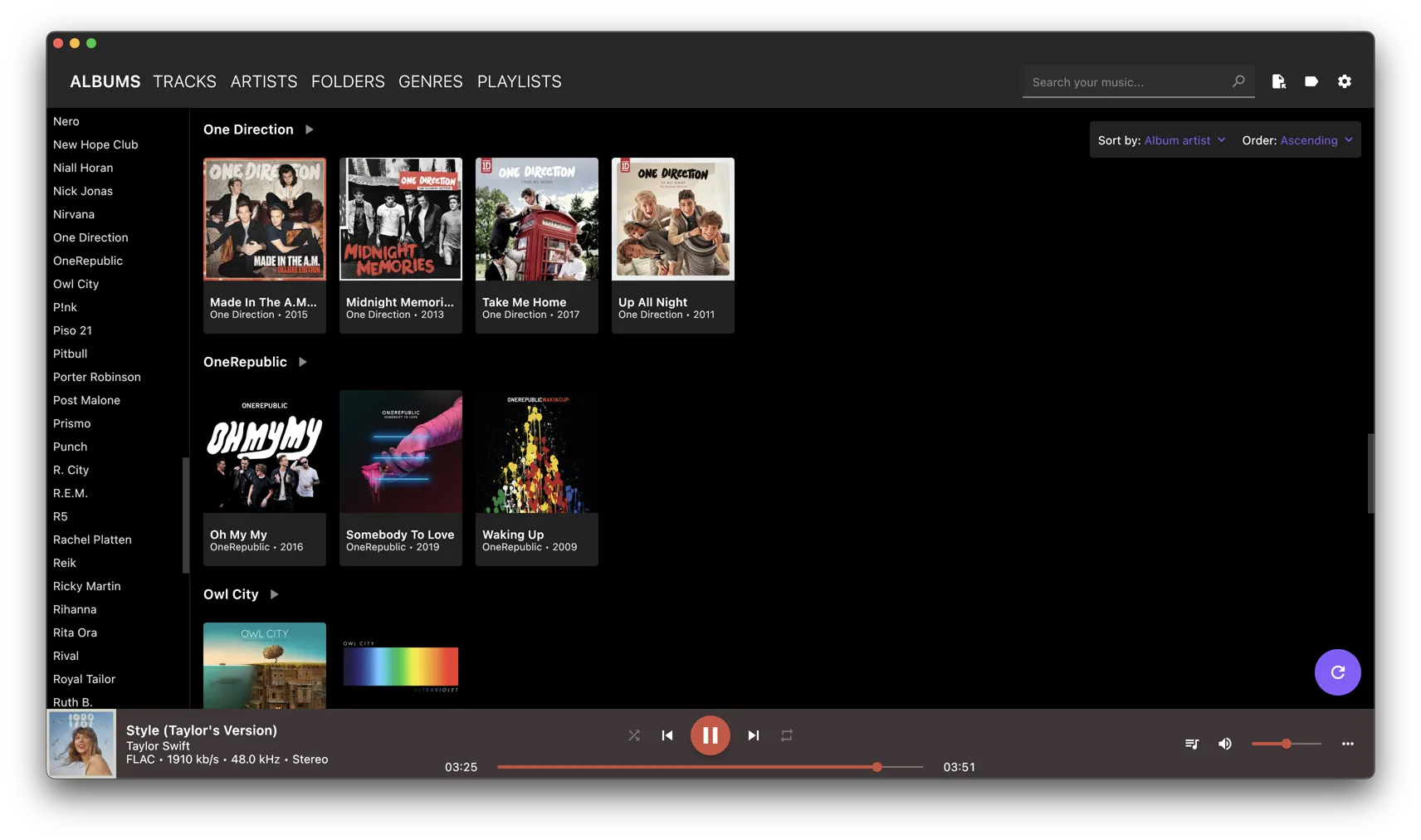
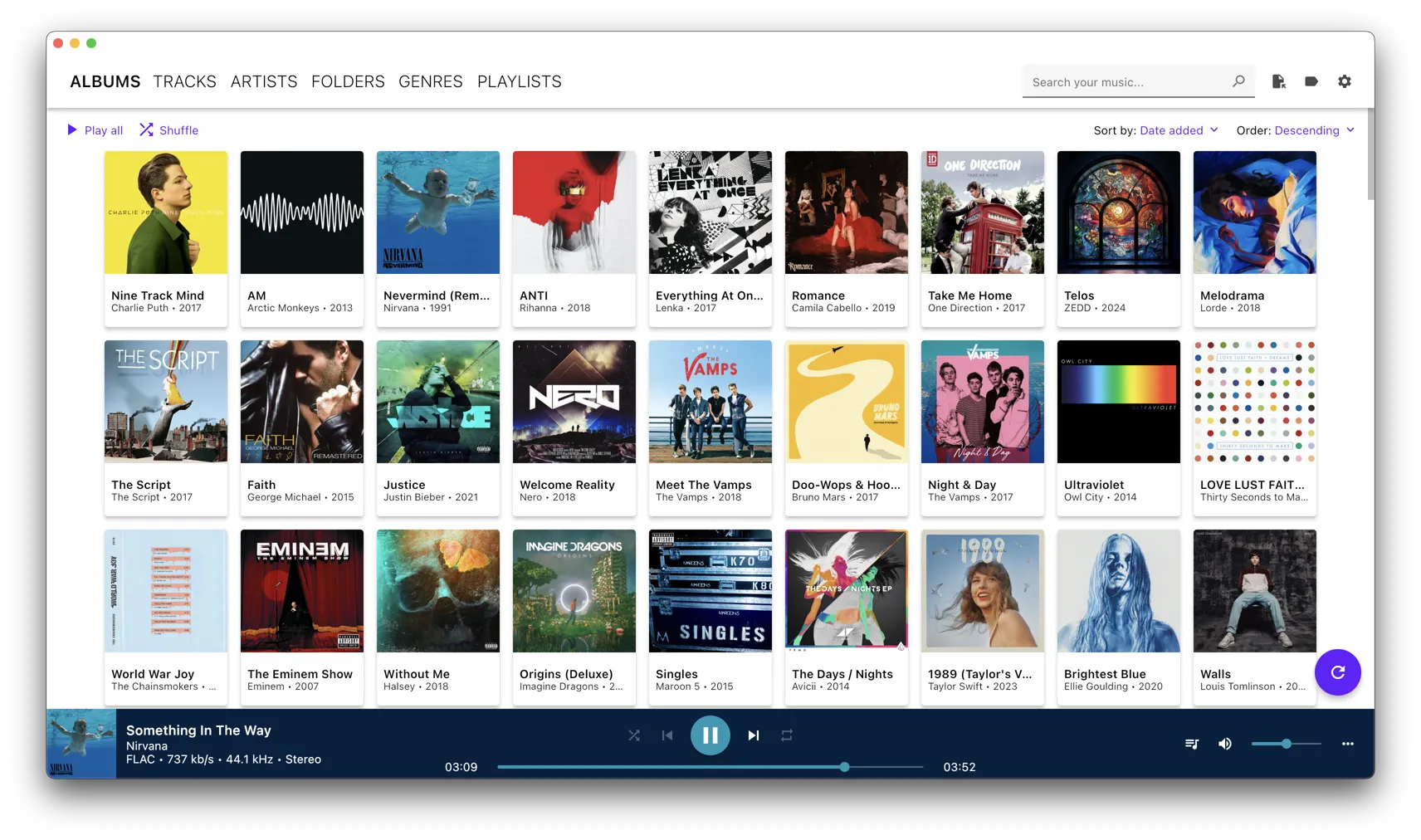
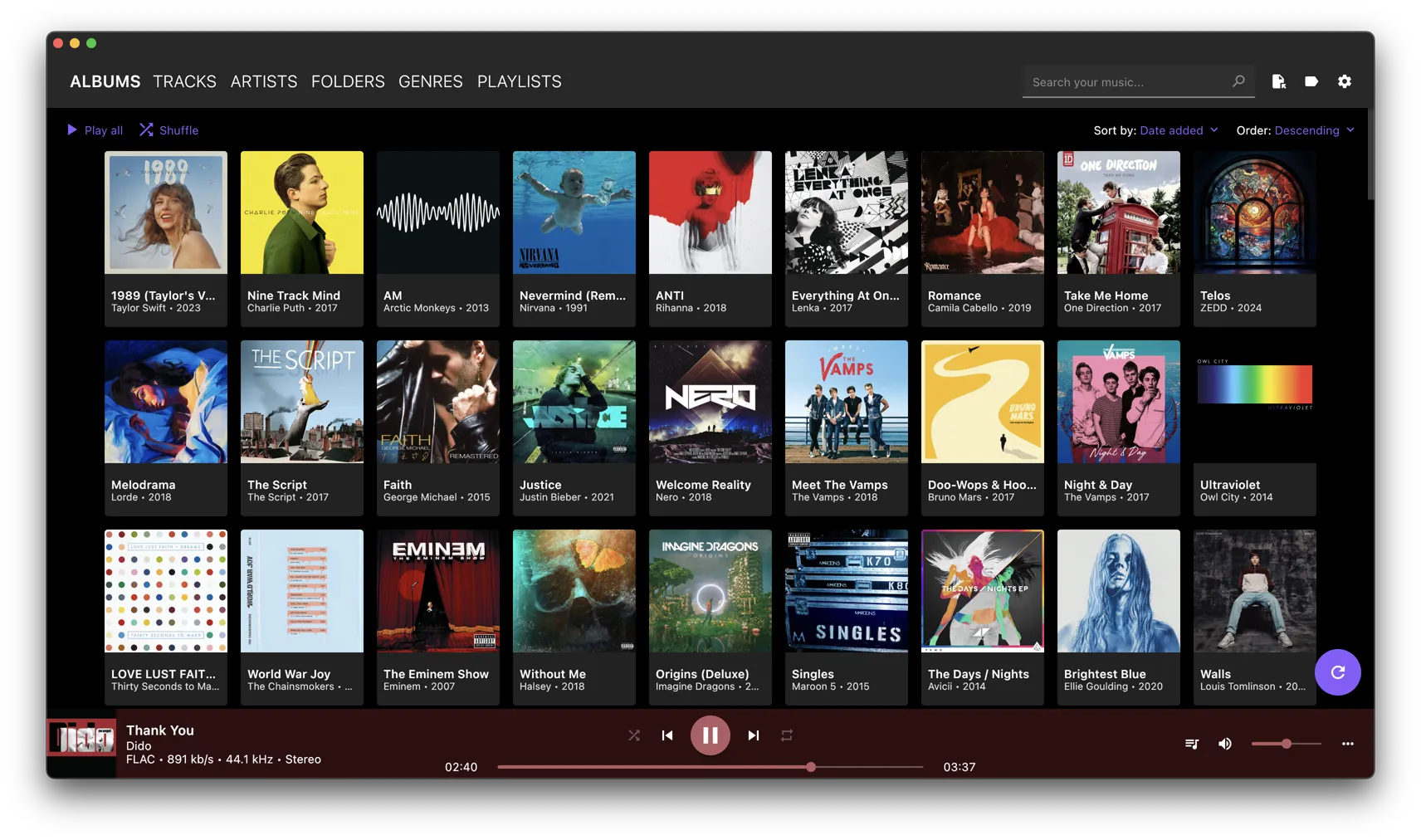
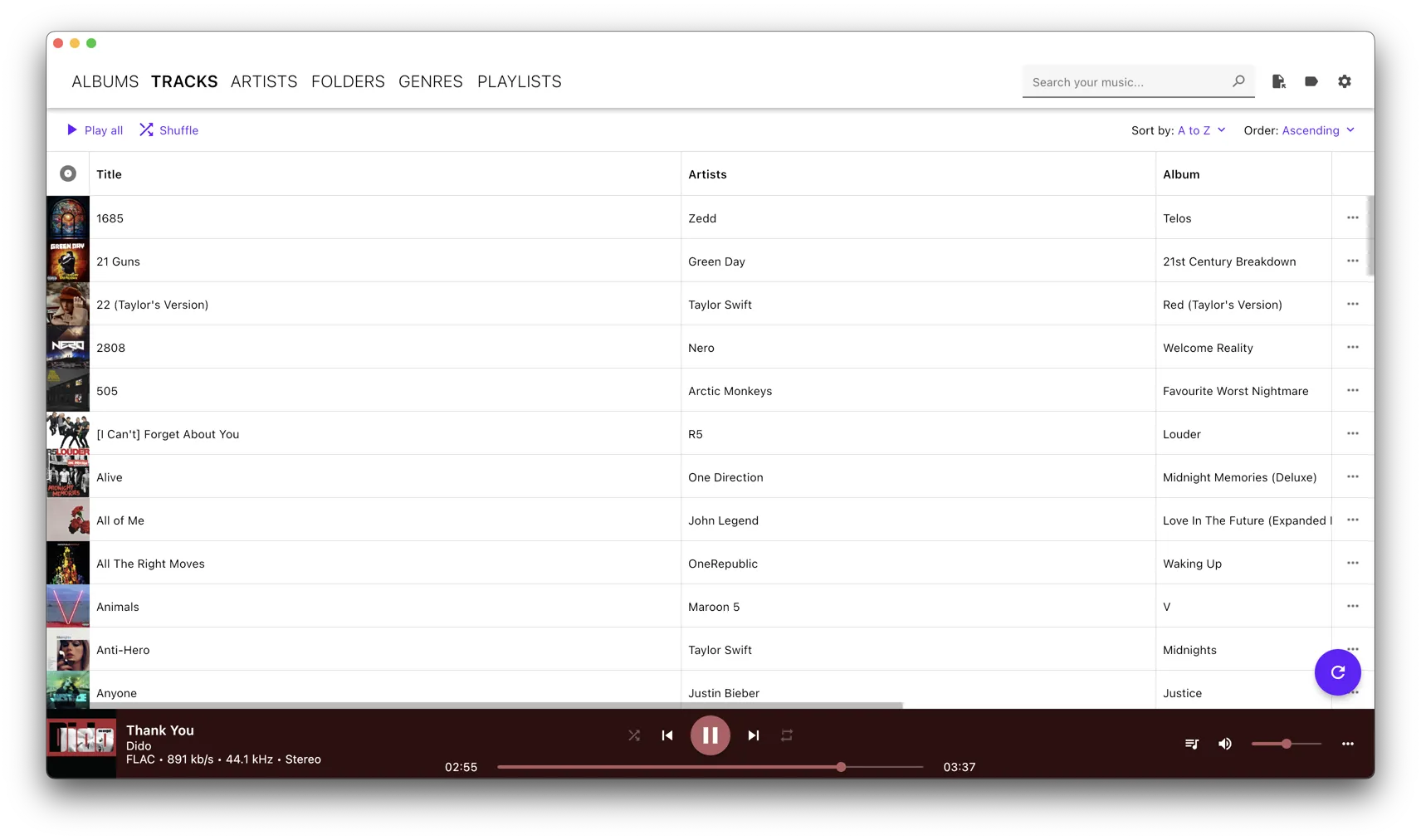
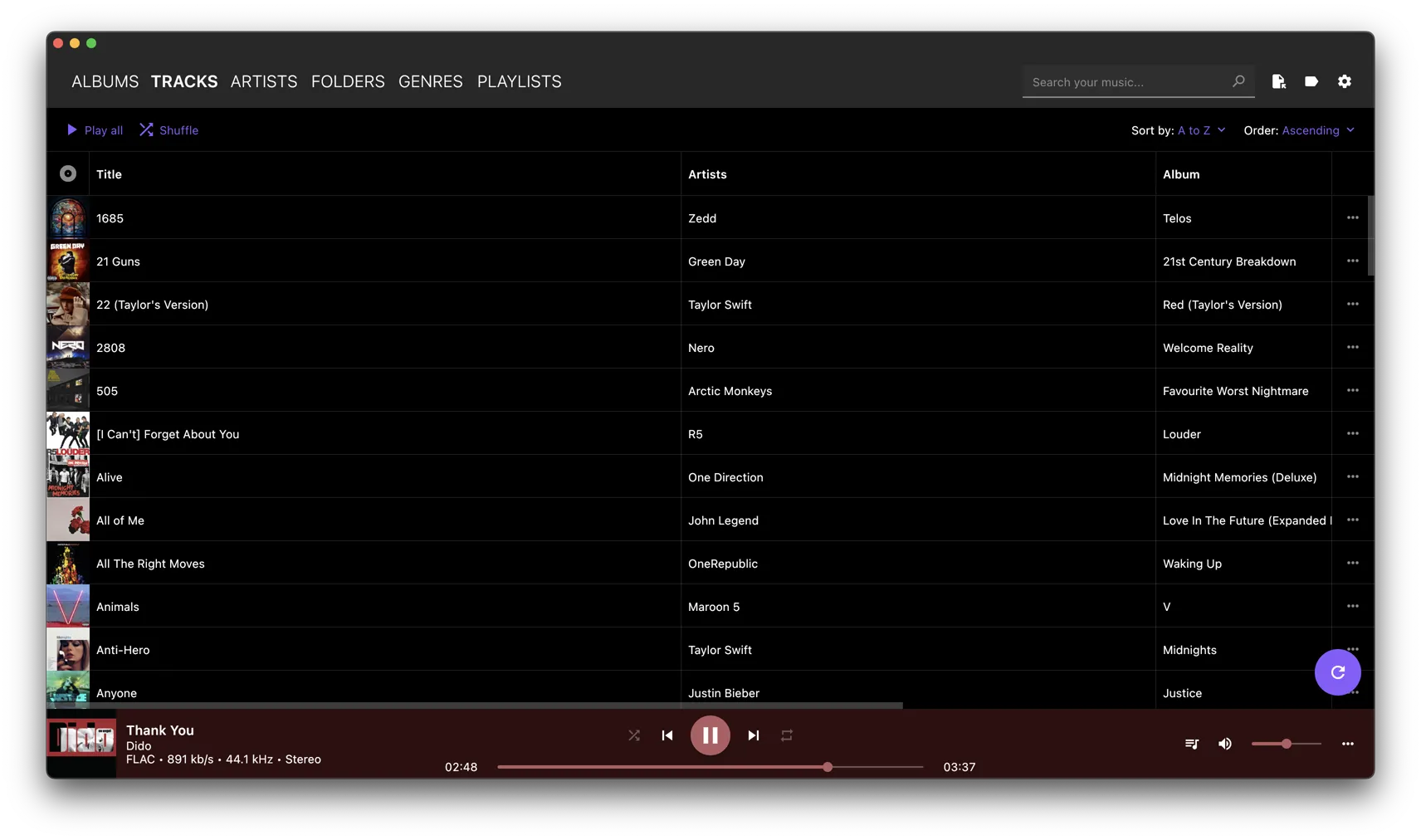
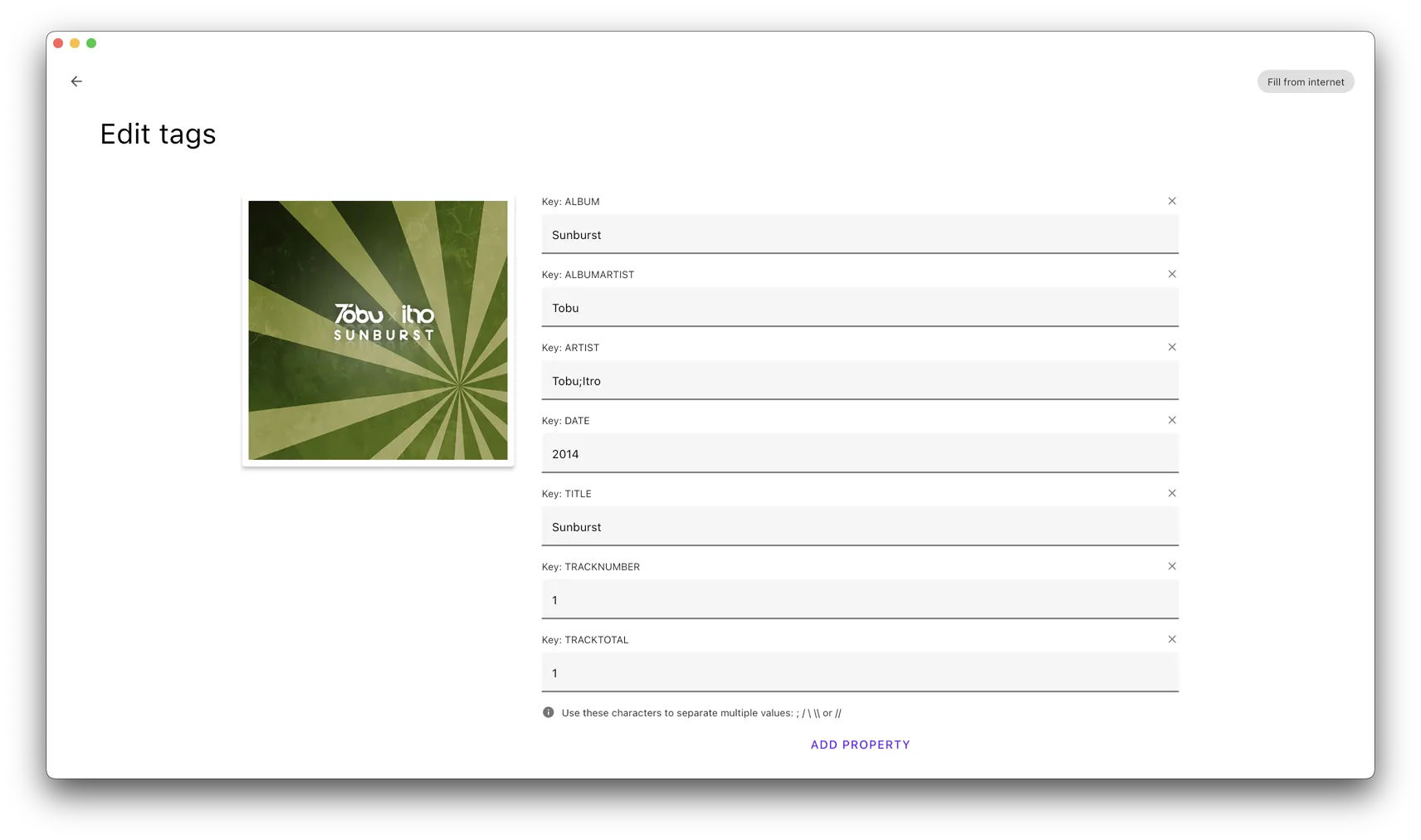
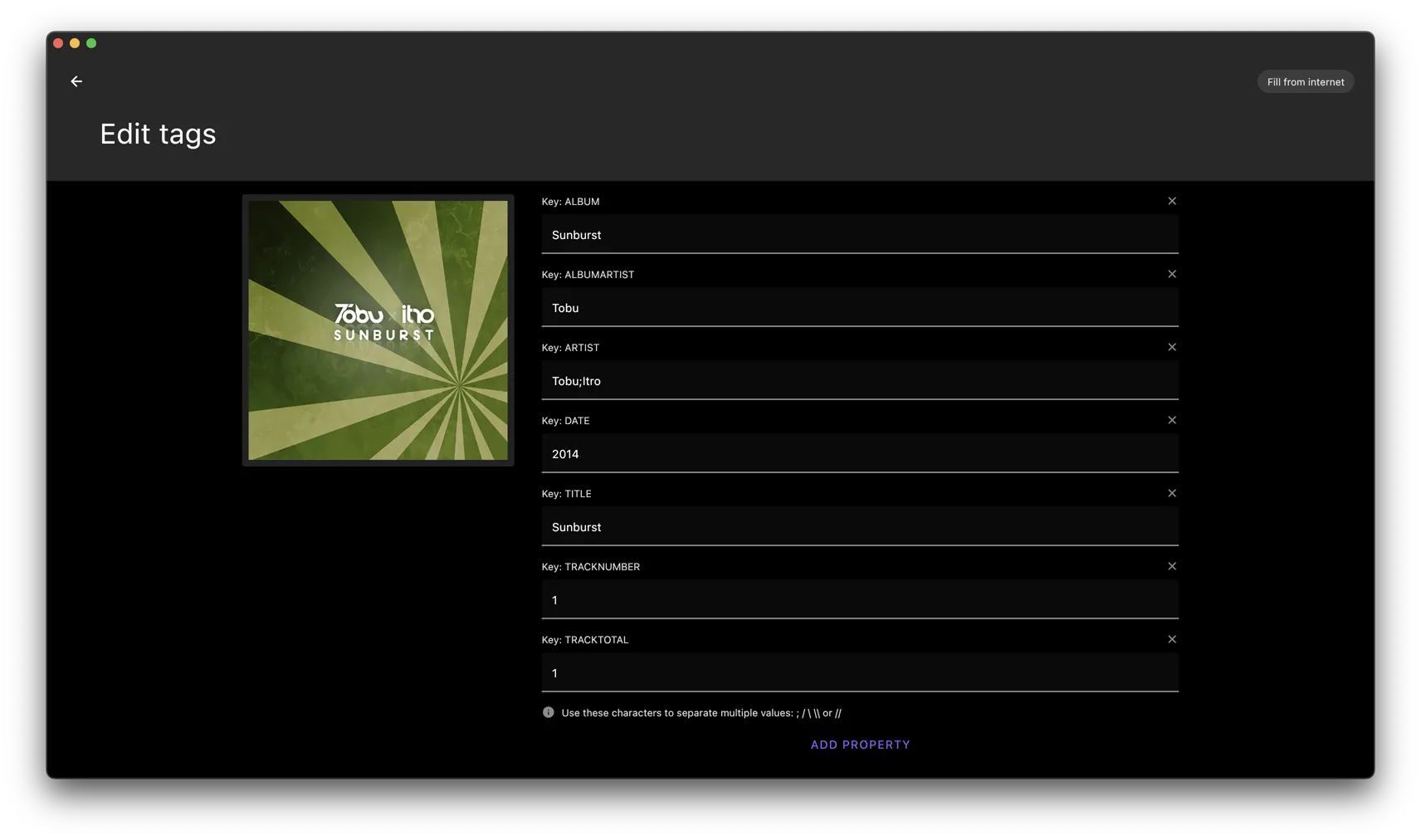
Swipe Right
Harmonoid
Plays & manages your music library. Looks beautiful & juicy.
Design & Motion
Elegant design & fluid animations, everywhere.
Performant
Blazingly fast media library & tag reader.
Cross Platform
Windows, GNU/Linux, macOS & Android.
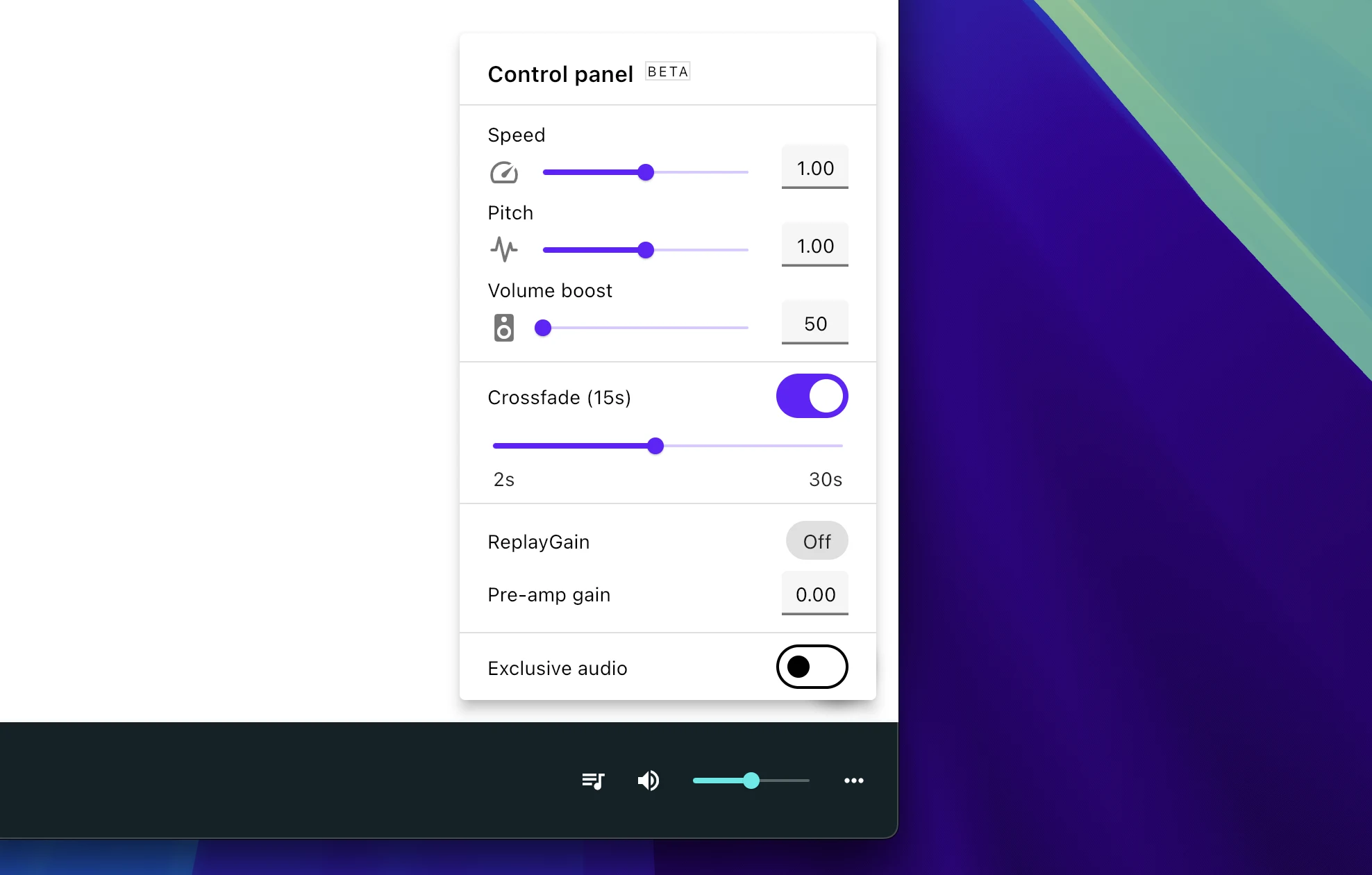
Customizable Audio
Playback speed, pitch, volume boost, crossfade, ReplayGain, exclusive mode & more.
Effortless Search
Find your music quicker.
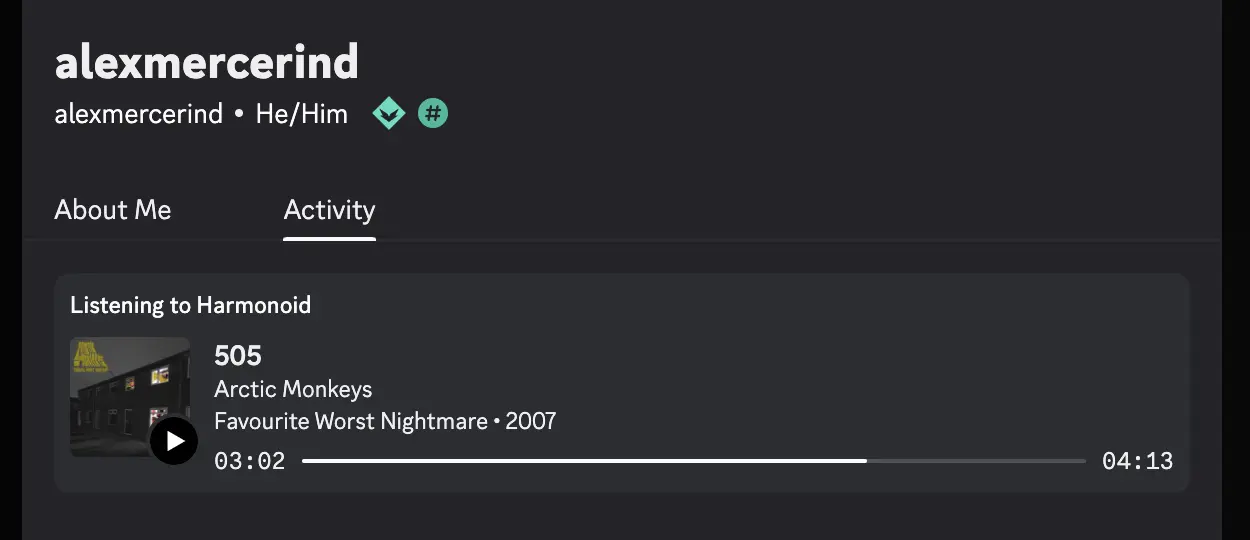
Discord Rich Presence
Show off what you're listening to.
Sing Along
Grab your mic. It'll find lyrics from the internet or provide your own.
Integrated
Paired to work together with the platform.
Playlists
Keep going back to your favorite ones.
Hyperlinks
They're everywhere to get you quick.
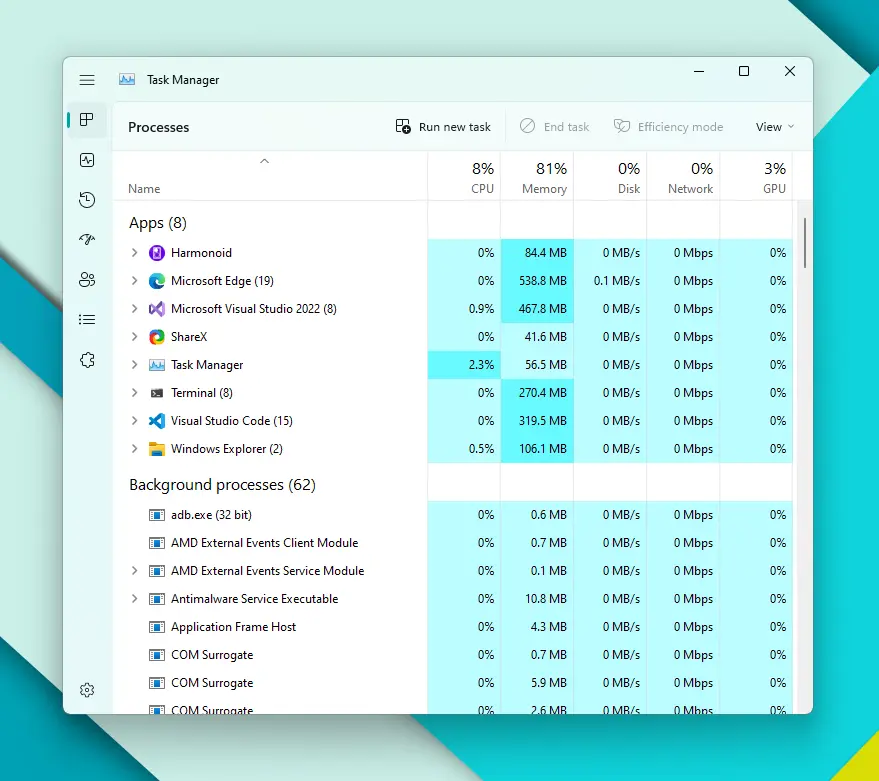
Light
Consumes less RAM. It's not Chrome/Chromium/electron.js.

Last.fm Scrobbler
Built-in Last.fm scrobbler that works out of the box, the way it should be.
